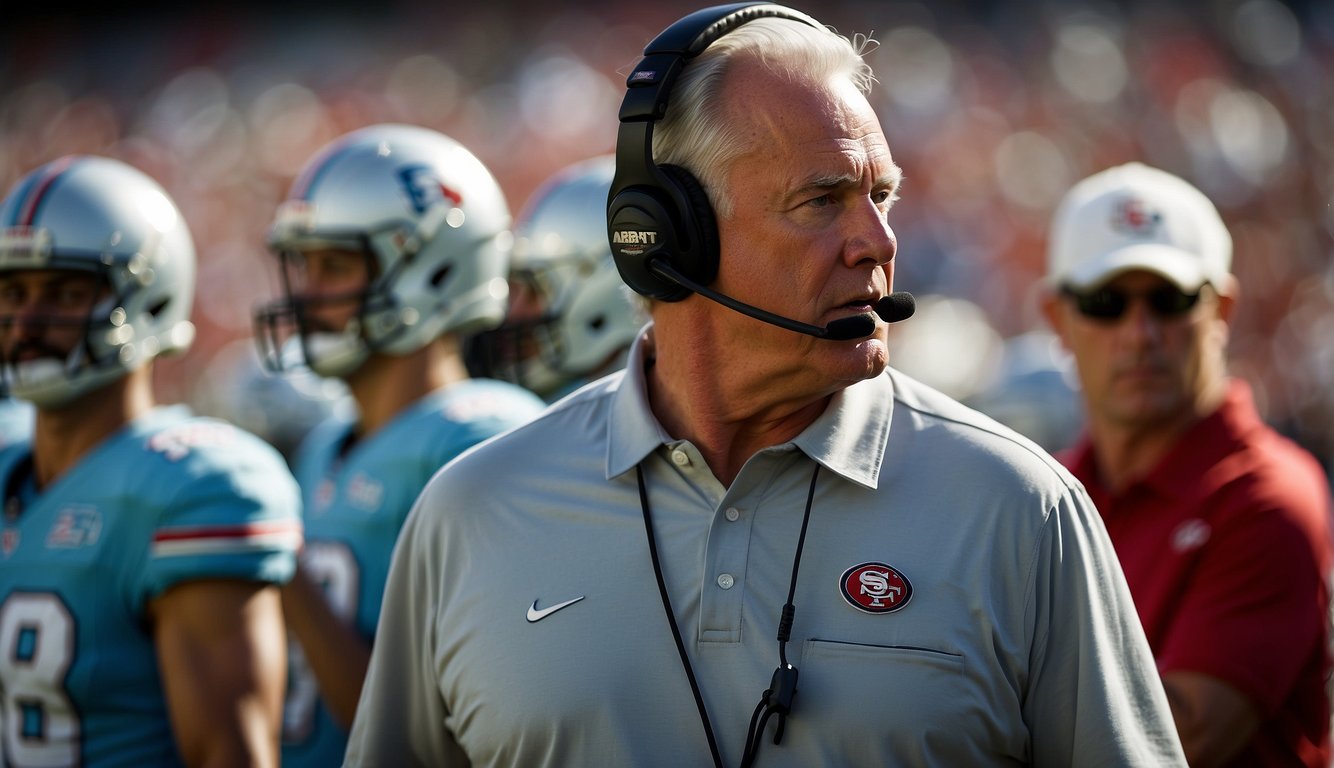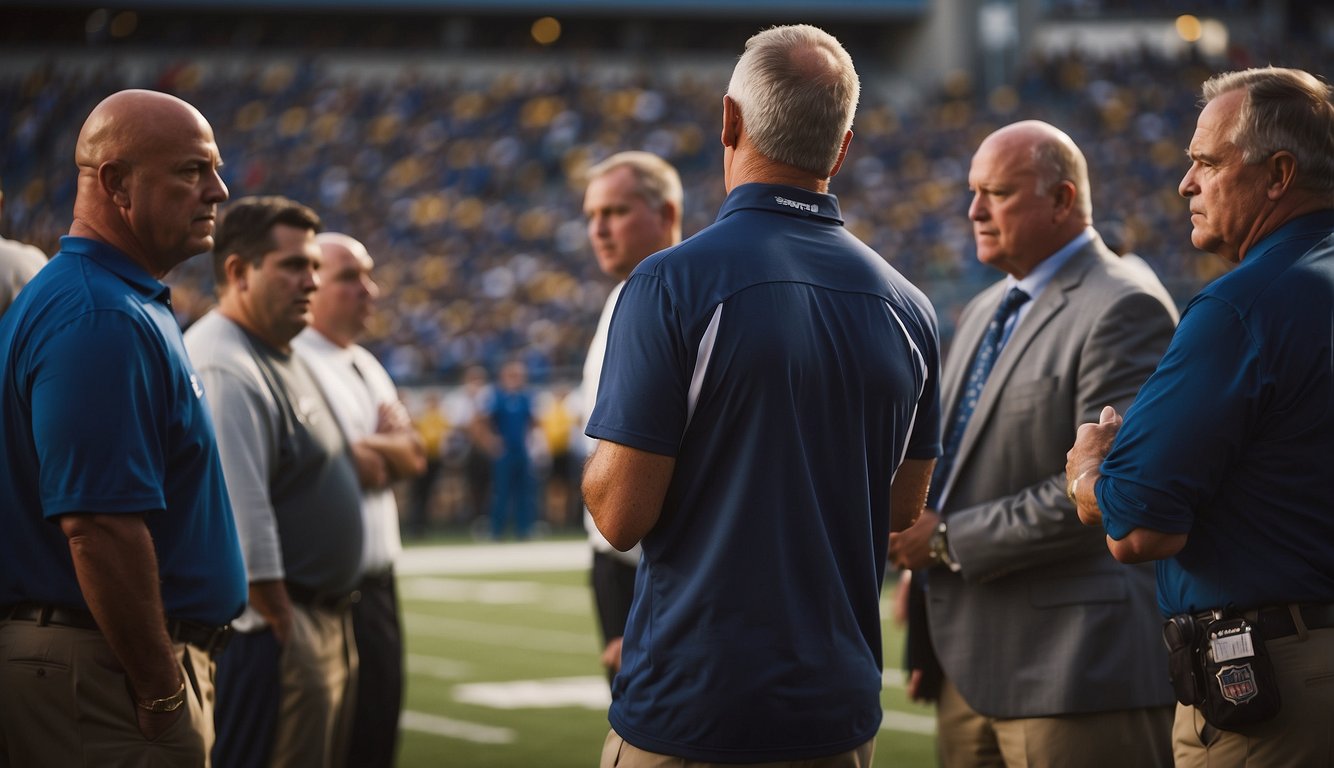Are College Football Coaches State Employees?
When observing college football and its leadership, it becomes apparent that in many states, college football coaches are the highest-paid public employees. This reflects the significant emphasis placed on college sports, especially football, within those regions.

Related Post! Why College Football Coaches Command High Salaries
Are College Football Coaches State Employees?
College football coaches at public universities are typically considered state employees, as their salaries are often funded by state budgets. This status places them among the highest-paid public employees in many states, reflecting the significant investment in collegiate athletics and prompting debates about funding priorities within public institutions.
The duties of a college football coach go well beyond the field, involving recruitment, player development, and often acting as a public relations figure for the institution. The substantial salaries of these coaches are justified by their multifaceted roles and the considerable income generated by successful sports programs, sparking debates about the allocation of funds by state-supported schools.
Key Takeaways:
- In numerous states, college football coaches are the top earners among public employees.
- Their compensation reflects extensive responsibilities beyond game day.
- The hefty financial backing in college athletics prompts debates over educational funding priorities.
Understanding the Scope of College Football Coaching:
The distinction between coaches at public and private schools is crucial, as it affects their employment status and compensation sources.

Public vs. Private Institutions:
- Public Universities: Here, coaches’ salaries often come from the state budget, making them state employees. In certain states, this makes them the highest-paid public workers.
- Private Universities: Salaries at these schools derive from private funds, including alumni donations and game revenues, meaning these coaches are not paid by the state.
Roles and Responsibilities:
College football coaches carry responsibilities that extend far beyond the gridiron:
- Recruiting: They scout and secure commitments from top high school talent.
- Game Planning: Coaches strategize for victories in upcoming contests.
- Player Development: A significant focus is on improving players’ skills and fitness.
- Leadership: They establish the team’s culture and mentor athletes.
- Media and Public Relations: Coaches often represent the program in public and media engagements, enhancing the school’s visibility and sports program prestige.
These factors contribute to the considerable investments in college football coaching, highlighting the complex interplay between sports success and educational funding.
Related Post! Are College Football Coaches Paid With Tax Dollars?
State Employment and College Coaches
When discussing high-earning state employees, college football coaches frequently emerge at the forefront due to their substantial salaries.

Legal Definitions:
A state employee is typically funded by the state’s budget, which includes employees of public universities. Therefore, football coaches at public institutions, like the renowned Bobby Bowden of Florida State, fall under the state employee category due to their salaries being partly financed through state funds.
Budgetary Considerations:
The justification for the high salaries of college football coaches involves several revenue sources:
- University Revenues: These include funds from ticket sales, merchandising, and media rights contributing to a coach’s salary.
- State Funding: Public universities may use state allocations to compensate their coaches.
- Private Donors: Contributions from donors can supplement the salary to attract and retain top coaching talent, reflecting in contracts like those of Clemson’s Dabo Swinney.
These elements collectively explain the high compensation levels within public college football programs.
Employment Status of Coaches:
College football coaches at public universities often hold a unique position as state employees, given the public funding involved in their compensation.
Contractual Agreements:
- Coaches sign contracts outlining terms, duties, and compensation, integrating them into the state’s payroll, particularly at public universities.
- Terms: Include duration, roles, and performance expectations.
- Compensation: Covers salary, potential bonuses, and other benefits.
- Termination: Details conditions under which the contract may be terminated.
Employee Benefits:
As state employees, college football coaches may receive:
- Health Insurance: Comparable to other state workers.
- Retirement Plans: Inclusion in state retirement systems.
- Paid Leave: Entitlements such as sick leave and vacation.
Understanding these aspects helps to contextualize the status of college football coaches within the broader spectrum of state employment, reflecting the significant role and investment in collegiate sports programs.
Related Post! How Much Do College Football Coaches Make?
Implications and Controversies

Before delving deeper, it’s essential to recognize the intricate dynamics surrounding college football coaches, entwined with ethical queries and public discourse.
Ethical Considerations:
The status of college football coaches, often the highest-paid state employees, brings to light ethical dilemmas:
- Salary Justification: The multimillion-dollar salaries of football coaches raise questions, especially when compared to the average earnings of college presidents and professors. This disparity leads to debates about the allocation of public funds and the implications for educational priorities.
- Performance vs. Education Focus: The significant difference in compensation between coaches and academic staff sparks discussions about the values and priorities of educational institutions.
Public Debate:
The hefty salaries of college football coaches spark widespread debate:
- Allocation of State Funds: There’s a contentious debate over whether state funds should prioritize athletic programs over academic endeavors.
- Accountability Standards: Questions arise about whether these highly paid coaches are subject to the same scrutiny as other public-sector workers.
Opinions vary widely:
- Support for High Salaries: Some argue that successful sports programs are self-sustaining and contribute to the university’s overall funding.
- Criticism of High Salaries: Others contend that these high earnings reflect a misalignment of values, prioritizing sports success over academic excellence.
These discussions extend beyond individual salaries, touching on broader issues of higher education values, the role of athletics, and societal priorities.
Related Post! Do College Football Coaches Have Agents?
Case Studies:
Exploring specific instances provides insight into the broader context:

- Florida State’s Bobby Bowden: Bowden’s landmark salary in 1995 set a new precedent for college football coaching pay, highlighting the upward trajectory of coaching compensations over time.
- Auburn’s Hugh Freeze: The 2024 season showcased the intense scrutiny and expectations placed on college football coaches in high-stakes environments, fueling discussions on leadership and accountability.
Legal Outcomes:
Legal perspectives further delineate the status of college football coaches:
- State Employment Status: Legal findings have underscored that head college football coaches are often the state’s highest-paid employees, directly tying their roles to public funding and responsibilities.
- Contracts and State Law: The contractual agreements of these coaches, governed by state laws, underscore their unique position within the public sector framework, marrying public responsibilities with the high stakes of collegiate sports.
These discussions and examples help to unravel the complex status of college football coaches as state employees, shedding light on the intersection of sports, education, and public funding.
Related Post! Do College Football Coaches Get Pensions?
